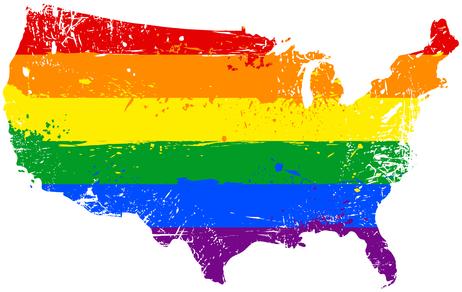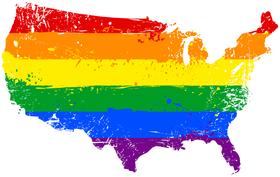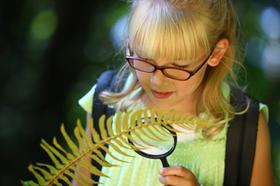Teaching Gay History in Public Schools: A Possible Mandate in California
The history books in public schools today include figures from all walks of life who have made significant contributions to the development of this country. In California, some legislators do not believe the curriculum has gone far enough to include all Americans who have played a role in our nation's history. To rectify the problem, lawmakers have introduced a bill that requires the teaching of gay history in schools. According to an Associated Press report, the California Senate approved the measure. However, it still must pass the Assembly and Governor Jerry Brown's desk before it becomes an official law of the state.
In this video, the Houston ISD Superintendent posits that what is taught in public schools should reflect today's reality, including African American history, Latino history, and LGBTQ history.
What the Bill Does
The California legislation would require schools to add LGBT figures to the list of social and ethnic groups that must already be included in current history lessons. It would also require the California Board of Education and local school districts within the state to adopt textbooks that cover the historical contributions of sexual minorities in this country. Material that reflects adversely on gays or particular religions would be banned from classroom teaching as well. Each school district would be able to determine what material to use and at what age the material would be taught.
The Controversy
As one might imagine, this bill is not without more than its share of controversy. Proponents of the bill say this addition to history books is no different than those made during the Civil Rights movement when African-Americans, Mexican-Americans, women, and other minority groups began to be recognized for their contributions to this country. Supporters add that this legislation would fill a noticeable gap in the state's current social studies curriculum and possibly curb anti-gay sentiments and attitudes that often lead to bullying of gay children in schools.
"It's fine to imagine we would have these expert educators deciding what history education should look like, but that's counter-historical in and of itself," New York University history and education professor Jonathan Zimmerman told the Associated Press. "Its citizens' groups who want to see themselves in the curriculum and see the curriculum as a rich, symbolic battlefield, which it is."
This video examines the historic moments of the gay rights movement that are often overlooked in schools. We explore the impact that has on students.
Those Opposed
Opponents of the bill say the legislation is unnecessary, and it may lead to teachers providing instruction on sexual orientation rather than history. Tucker Carlson, the host of Daily Caller, said on TPM Muckraker, "At any age, teaching propaganda is wrong. No one is suggesting, and no one, as far as I know in the modern age, has ever suggested that people who are gay not be included in history. I mean, that's ludicrous. But this bill would teach kids politically charged facts that are not the whole story. It would lie to kids; it would prevent schools from teaching things that somehow reflected poorly on a group that has political power."
Others opposed to the bill say they are concerned about the indoctrination of children by adding this material to the history lessons. They do not believe public school teachers should be called to make a value judgment on the gay lifestyle if they are uncomfortable doing so. During one tense hearing before the Senate Education Committee, Robert Evans, a pastor from a California church, wanted to know how the schools would be able to balance a twin mandate that eliminates a bias against gay people while fairly representing religions that do not embrace homosexuality.
One of the opponents of the bill, Sen. Doug La Malfa of Butte, told PrideSource, "I'm deeply troubled kids would have to contemplate at a very, very early age when many of us are teaching abstinence…what is sexuality."
Those in Favor
Democratic Senator Mark Leno of San Francisco sponsors the legislation. Leno, who is openly gay, has told TPM Muckraker, "This is not teaching sexuality. This is teaching history and what the fight for Civil Rights equality, fighting for the great promise of our constitution, that all men and women are created equal and should be treated fairly and equally under the law."
Leno also told PrideSource that gay children are still struggling with verbal and physical abuse from their peers. Leno said, "We are second-class citizens and children are listening. When they see their teachers don't step up to the plate when their classmate is being harassed, literally to death, they are listening and they get the message that there is something wrong with those people."
This video explains how historians wrestle with how to teach LGBT history to schools
In addition to the arguments about value judgments and stereotypes, there is also a more practical issue with this legislation. Some are concerned that in a curriculum that is already more than most teachers can handle in a given school year, adding additional material to the lessons would be too much. Henry Der, a former deputy superintendent of California State Schools, told the Associated Press that with teachers under the gun to bring up math and reading scores, curriculum changes like these do not always trickle down to the students.
"As much as we respect a leader like Harvey Milk or Cesar Chavez,…teachers aren't getting to teach about the contributions of these individuals. It really all comes down to what happens in the classroom and what teachers and principals deem to be important given the amount of time they have."
The legislation passed the California Senate on a 23-14 party-line vote. Next, it will head to the Democrat-controlled Assembly before reaching Governor Jerry Brown's desk for his signature. At that time, the legislation would officially become state law.
Questions? Contact us on Facebook and Instagram. @publicschoolreview
#LGBTQHistory #InclusiveEducation #CaliforniaSchools #CurriculumReform #EducationEquality @publicschools















